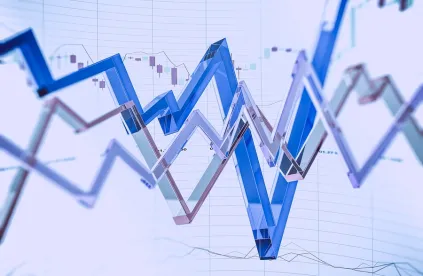Investigators with the U.S. Department of Justice reportedly are investigating energy pricing benchmarks published by Platts, targeting suspected manipulation of deal prices provided by individual traders.
According to the report, published Monday by Reuters, federal investigators are focused on alleged wrongdoing by traders in submitting deal prices to be used in calculating oil and energy benchmarks. By supplying fraudulent information to Platts, the traders attempted to influence the S&P Global’s daily market price for energy industry commodities and profit on subsequent trading.
The Reuters report notes that Platts itself is not suspected of any wrongdoing. However, the company’s data benchmarks are used to price billions of dollars’ worth of contracts every day, meaning any such data manipulation could impact a wide range of industries across the globe.
The investigation continues a recent DOJ focus on fraud and manipulation in the commodities markets. Earlier this year, a former oil trader for Glencore Plc pleaded guilty to charges of manipulating Platt’s oil benchmarks. This action follows the high profile allegations of racketeering leveled at four former JP Morgan Chase precious metals traders, and the firm itself, centered on the apparent extensive use of spoofed trades in the precious metals market and subsequent banking of profits from that market manipulation by the firm.
While the DOJ’s current crackdown extends at least to 2019, when the Department launched a sophisticated anti-commodities fraud unit in conjunction with CFTC, the Biden Administration has shown no indication it intends to back off from this focus on commodities market manipulation. The U.S. Department of Justice’s Fraud Section has charged 21 commodities traders, programmers, and salespeople at global financial institutions and proprietary trading firms over the last several years. Since 2019, the Fraud Section also has entered into six corporate resolutions relating to violations of the commodities laws—with the aforementioned JPMorgan Chase, The Bank of Nova Scotia, Merrill Lynch Commodities, Deutsche Bank AG, Tower Research Capital, and Propex Derivatives—with a combined total monetary amount of over $1 billion.
The Platts investigation has similarities to the London Inter-Bank Offered Rate (LIBOR) investigation in which it was alleged that banks were falsely inflating or deflating their average interest rates calculations so as to profit from trades, or to give the impression that they were more creditworthy than they were. The LIBOR investigation continued for several years, involved numerous enforcement agencies, and resulted in banks pleading guilty or entering into deferred prosecution agreements in the U.S and U.K.
Energy companies should be prepared to respond to this investigation, which may include responding to subpoenas, interfacing with regulators, witness interviews, and internal investigations.
Compliance programs and monitoring are critical to help protect companies operating in the commodities market. These measures ensure that all traders and employees adhere to applicable guidelines set by the company and the baseline requirements set by applicable law. Increased documentation, monitoring, and improvements to assessing the reliability of statistical data and how it is collected are important areas where companies can beef up programs to ensure they adequately protect themselves and monitor employee conduct.





 />i
/>i

